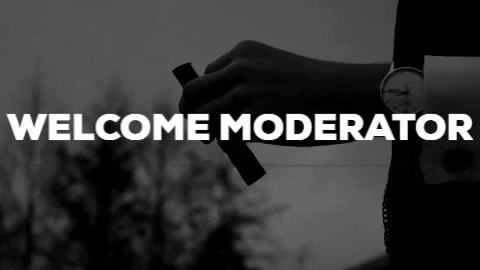Monday, October 14, 2019
RESEARCH: ART OF THE TITLE (STRANGER THINGS)
Stranger Things
The colours of the typeface is very stereotypical of the genre set. The red of the font can connote blood, and many of the fans of Stranger things would know this is relevant as one of the characters has nose bleeds in the episodes. The darkness that fills the rest of the screen can connote feelings of evil or unknowing which also fits in with the genre as it is a thriller/horror. This feeling of unknown is what makes a good horror film. The typeface of the title sequence is also associated with the 1980, this ties in with the title sequence as the iconic synth of the 1980's music style is played as non-diegetic sound in the background. The visuals to the title sequence have also been synced to the music that is played, with each time there is strong bass to the music, the frame changes position and new credits are shown on screen. This is very effective as it gives the title sequence pace. The typeface also appears like neon fluorescent lamp which connotes a stereotype of the 80's style of clothing which tended to be bright colours and neon lamps were a regular occurrence.
The story of the title sequence is very linear, with the story being the letters of the title sequence coming together to make the main title. The text tends to slowly move in towards the middle of the screen which is a contrasting white so they stand out in the frame. It makes it very easy for the audience to distinguish who was involved in the making of the TV series.
The weaknesses to the title sequence is that there is no introduction to the prominent actors and actresses involved in the TV series, this means that the audience will struggle to make connections between the characters and the actors that play them. To improve this I would add still shots of the actors with their characters name with the style of the still similar to that of the main header font.
Friday, October 11, 2019
RESEARCH: DISTRIBUTION COLLAGE
My chosen film is positioned as a thriller film that
utilises the escapism aspect of our theoretical framework Blumler and Katz’
theory. The main selling points of this film is that it is an established
franchise. It also incorporates a cross over between previous movies within the
Marvel Cinematic Universe. Chris Resseling of Pathe showed me insight into how
distributors market a film’s unique selling point. This includes things such as
star cast and its provenance. In this case Spider-man is a part of the Marvel
Cinematic Universe which means audiences who may not watch Spider-man but enjoy
Avengers films may be more inclined to watch Spider-man Far From Home as a
result. The star cast includes renowned actors such as Tom Holland (who was the
previous Spider-man) and Samuel Jackson, an actor of high prestige and is known
for being in good films. Spider-man Far From Home is a sequel to the Spider-man franchise.
Kezia Williams head of theatrical distribution at Pathe explained that, in a congested marketplace, a
distributors aim is to position a film in a way so that it stands out for their
target audiences and makes it look unique to other films they may have seen in
the same genre. They utilise their twitter pages and other social media
networks in order to help build hype for the target audience so that on opening
weekend the box office revenue will be larger than if no hype had been built.
This includes the drip feeding of information on the film and the posters
associated with it. In the case of Spider-man Far from Home the choice of
posters is limited. There are four posters, the one standing out the most shows
the iconic Spider-man mask and the locations they will be visiting in the film
as well.
As the Spider-man Far From Home movie was made under
one of the big six names (Disney) there was a big budget for high quality CGI
to be used in the making of the film. This meant that scenes used could be
abroad like the countries the trailers, as well as high quality animation for
the web slinging in which Spider-man is renowned for. This high budget allows
for a high quality movie to be made, so as a result the movie can be marketed
to an audience for these aspects. As a form of marketing, as depicted by the collage above, Disney released a VR experience for Spider-man Far From Home. This game was then played by many large Youtubers, gaining the film lots of free publicity as many of the people who watched the Youtube videos would then buy the game and watch the film.
 Spider-man Far From
Home on the whole received good reviews from many critics. Rotten tomatoes
gave the film 90% and IMDB awarding the film 7.7/10. The movie received 3 Teen
Choice Awards for Movie of the Summer and best Male and Female star.
Spider-man Far From
Home on the whole received good reviews from many critics. Rotten tomatoes
gave the film 90% and IMDB awarding the film 7.7/10. The movie received 3 Teen
Choice Awards for Movie of the Summer and best Male and Female star.
Subscribe to:
Comments (Atom)
Welcome Moderator
Thomas Hutchinson 1733 Claremont Fan Court School 64680 I worked with Charlie Slorick 1770 and Alexander Wain 1779 Our brief wa...

-
Casting for Duty Calls from TomHutchinson24
-
The title sequence to SPLIT is very effective at showing the genre of the TV series as being psychological horror. This is done by the u...
-
I created my own ScoopIt! account so that I could find different film openings, in order to aid in me in providing ideas to create my own fi...



